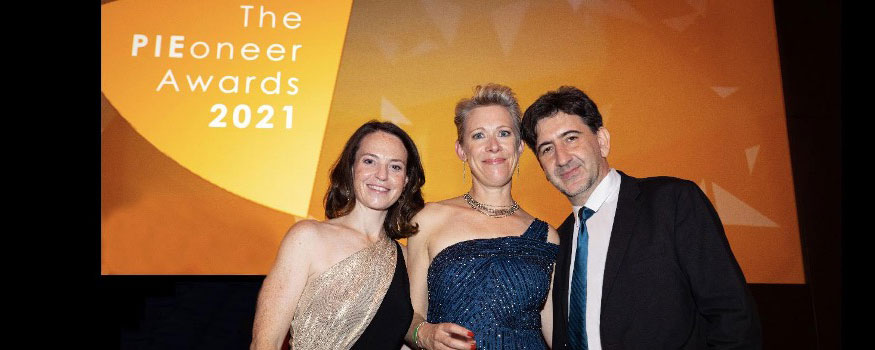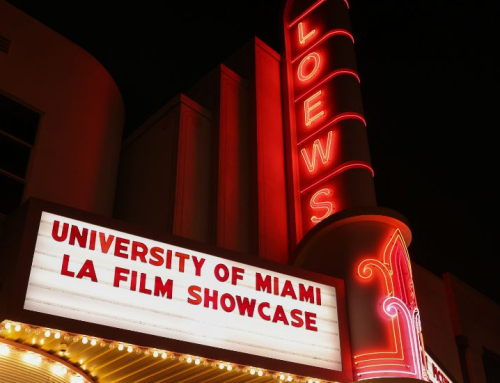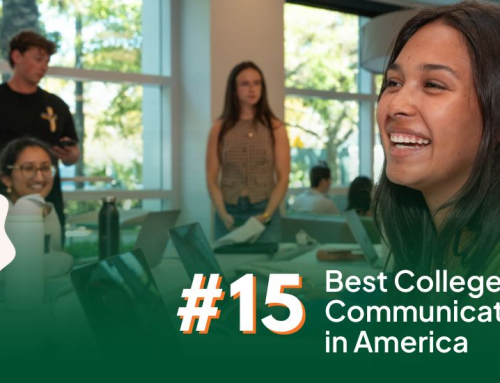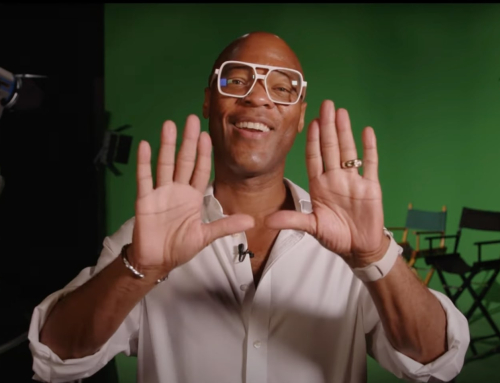By Esther Animalu
The PIEoneer Awards acknowledges success and novelty across the education industry worldwide. Every year, they hold a highly prestigious award ceremony at the historical London Guildhall, to celebrate individuals and organizations who are reshaping academic pillars and transforming learning pathways for students globally.
Ali Habashi, an award-winning filmmaker and assistant professor of professional practice at the University of Miami School of Communication, attended the 2021 PIEoneer Awards in London, and submitted a project, a few months earlier, that won the equivalent of second place.
Habashi’s project is known as Ocean Health Voyage, a global online educational platform dedicated to Oceans and Marine Conservation that he produced, above and under water, in 10 intentional locations around the world. This platform combines an academic syllabus with captivating documentary-style films and takes students into an immersive experience around the planet.
“The education industry is quickly changing, perhaps partly due to the pandemic,” said Habashi. “And while we are considering adding elements of technology such as AI, VR, and AR in our future courses—one timeless constant is the ability to tell a good cinematic story that connects to the hearts and minds of the audience, in this case the students.”
Through Habashi’s project, he collaborated with 10 renowned marine biologists in remote locations worldwide to dive deeper into the health and overall wellness of the world’s oceans.
“I have been fortunate to travel and work in more than 50 countries while filming various environmental and health stories,” said Habashi. “I have always been looking for innovative ways to stretch our classrooms beyond their walls and help our students develop a global curiosity and empathy.”
The collaborative project comprises 10 highly distinguished marine biologists and researchers who teach the fundamentals of marine conservation such as biodiversity, coastal protection, and climate change from international locations—as opposed to a classroom—while working with stakeholders.
Habashi’s project focuses on a cinematic adventure that showcases marine researchers as they work with stakeholders in the field about ocean science and policies and touch upon maritime-related issues. Ocean Health Voyage was nominated as one of the seven finalists in the category of Progressive Education Delivery, selected by nearly 35 distinguished international jury members from more than 450 entries around the world.
Although the project did not win the top prize at the PIEoneer Awards, it received the “Highly Commended” recognition, which equates to being the runner up within the category.
“I have been told PIEoneer Awards is like the Academy Awards for global education,” said Habashi. “I am very grateful for this significant recognition and remain grateful that I was asked to apply for this award by Dr. Gabriela Geron, the director of partnerships, innovation and communications at the University of Miami Hemispheric University Consortium.”
Ocean Health Voyage is currently offered as an innovative course in the curriculum of eight major universities in the United States, Latin America, and the Caribbean.
“We are collectively learning that in online education “quality” matters and in this case, we used our storytelling and cinematic skillset to make this education an engaging one,” said Habashi.
At the School of Communication Department of Cinematic Arts, Habashi teaches many classes in intermediate and advanced narrative film production, as well as a cross-disciplinary course on “Global Issues and Film-making.”
“When it comes to interdisciplinary education for complex topics such as climate change and public health, we are preparing our students to develop the required critical thinking skill-sets to face an uncertain world,” said Habashi. “We still have a long way to go to experiment and to innovate. Now is a good time to explore this space.”







